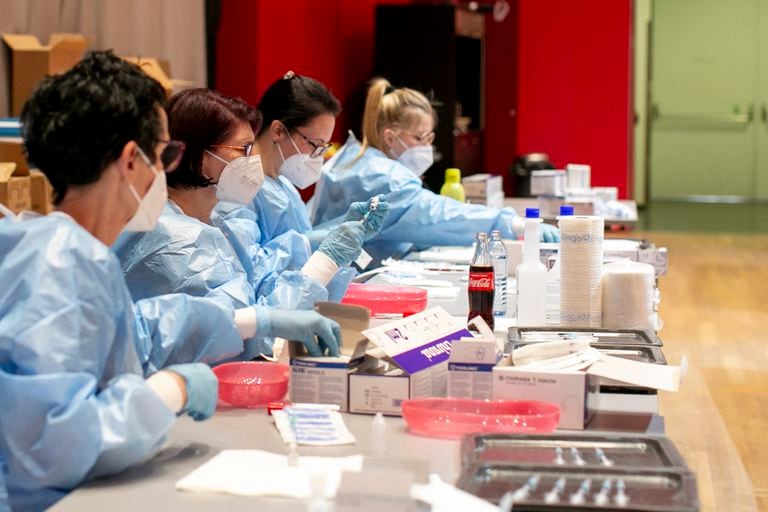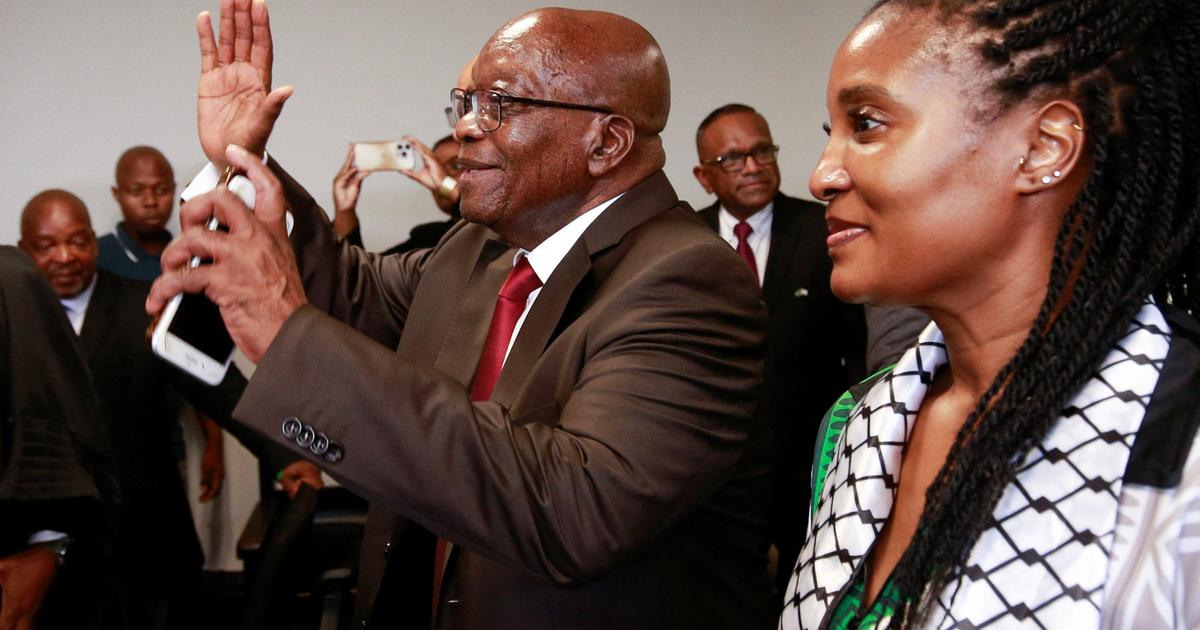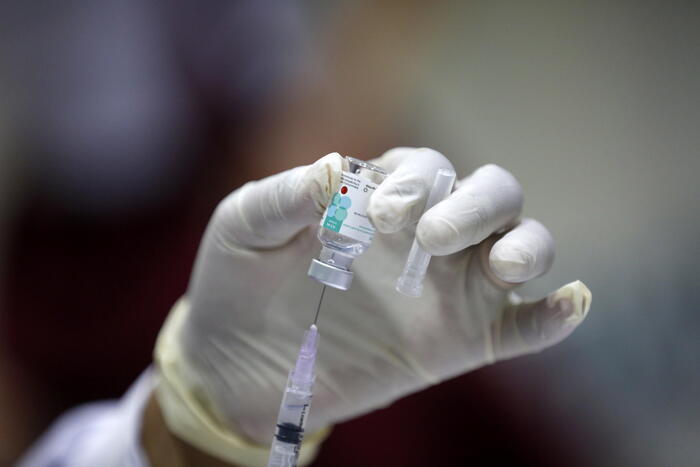Nurses prepared doses of the Pfizer vaccine in the city of Schwaz, Austria, on Thursday.Jan Hetfleisch / Getty Images
The European vaccination campaigns are once again capsized by the failures in the distribution of doses, the doubts about the secondary effects of some of them and the squabbles between some Member States.
The main problems revolve around the repeated breaches of the pharmaceutical AstraZeneca of the agreed delivery schedule.
But the sense of slowness and mess extends beyond the failings of the Anglo-Swedish company and threatens the credibility of the entire vaccination process.
Brussels has twice tried to refloat the campaigns, first with a call to order to AstraZeneca and with a control of its exports and later with a group of supervision of the production chain.
But neither of the two routes has so far made it possible to regularize the supply and set a reliable vaccination schedule.
The shocks have been repeated throughout this week, despite the fact that the group in charge of overseeing production, led by European Commissioner Thierry Breton, has multiplied contacts with pharmaceutical companies.
Breton has stepped up pressure on companies, in particular AstraZeneca.
But with questionable success for now.
This is how vaccination against covid evolves in Spain and in the world
Five communities recall part of a batch of AstraZeneca investigated for adverse reactions in some countries
The company has acknowledged that it will not meet the first quarter target, despite having already revised it down by more than 60% to 40 million doses.
The new data points to a delivery of 30 million, that is, a cut of 25%.
Some community sources point out that the figure could be even lower.
Looking ahead to the second quarter, AstraZeneca assures that it will only deliver 70 million doses of the 180 that were planned.
In total, the pharmaceutical company sets the goal of providing 100 million doses throughout the first half of the year, as explained in a statement made public this Friday.
"Unfortunately, export restrictions will reduce deliveries in the first quarter and are likely to affect deliveries in the second quarter," explains AstraZeneca, which claims to have worked "tirelessly" to accelerate the supply of the drug.
The new supply failure comes a month and a half after the Commission approved a regulation to control the export of pharmaceutical companies with which Brussels has reserved the delivery of vaccines and prevent, if necessary, their departure from Community territory.
Italy has been the only country that has used such a rule to prevent AstraZeneca from exporting a quarter of a million doses to Australia.
The regulation has also made it possible to clarify the outward flow of these pharmaceutical companies.
According to data from the Commission, in the first six weeks of application of the regulation (in force since February 1), 34 million doses have left the EU for 31 countries.
The largest volume (9.1 million) has gone to the UK.
Turbulent week
Transparency and control, however, have not solved the problems.
Breton has asked that the board of directors of AstraZeneca "do everything necessary to fulfill its commitments".
The words of the European commissioner seem directed against the CEO of the company, the French Pascal Soriot, who has been his interlocutor until now and who promised to deliver at least 40 million doses until March 31.
AstraZeneca's new fiasco ends a turbulent week, which began with the recognition that not all expected vaccines will be distributed in the second quarter.
The European Commission, based on data from pharmaceutical companies, has revised the calculations from 380 million doses to 300 million, almost a quarter less.
The cut in the second quarter comes despite the fact that the Commission authorized the marketing of Janssen's vaccine, the fourth in the community portfolio and the first to be administered with a single dose.
Brussels hoped that the new drug would help speed up vaccination campaigns.
However, the pharmaceutical company (owned by the US multinational Johnson & Johnson) has already indicated that the first deliveries to the EU will not arrive until the second half of April.
"Right now we don't even have a vaccine in
stock,
" acknowledged Johan Van Hoof, head of Johnson & Johnson's vaccine division.
The Commission has reserved up to 1.86 billion doses with the four companies that have a licensed vaccine in Europe (BioNTech-Pfizer, Moderna, AstraZeneca and Janssen).
The community body used a budget of 2.6 billion euros to pay six companies (the four authorized plus CureVac and Sanofi-GSK) for the advance production of the doses destined for the EU, without waiting for the green light from the European Agency of the Medicine.
The aim was for the vials to start flowing to the Member States as soon as the agency validated the vaccines.
But only the German BioNTech and its industrial partner, the American Pfizer, seem to have fulfilled that commitment.
The delivery schedule for the rest is still fraught with uncertainty.
The Austrian Chancellor's "bazaar"
The feeling of stagnation in European campaigns is exacerbated by the contrast with the speed of vaccinations in the US and by the worsening of the epidemic in some parts of the continent, such as Italy.
Impatience and unease increase at times and more or less angry reactions follow one another.
The Austrian Chancellor, Sebastian Kurz, launched accusations on Friday, without a clear addressee, about an alleged marketing of doses between the member states that would be favoring some and harming others.
"The last weeks have shown that deliveries are not being made in proportion to the population," criticized Kurz, who believes that the exchange of doses between community partners is allowing countries such as Malta or Denmark to advance faster in vaccination.
The Commission has recalled that the distribution according to the population does not oblige the governments to purchase all the vaccines that could correspond to them.
And that States can renounce a part or exchange it with another State for vials from another manufacturer if it is more convenient for them because of price or distribution.
Kurz has described these exchanges as a "bazaar" that is carried out in secret, although the operations are carried out in the committee in charge of contracts where the Austrian Government sits, whose representative occupies no less than the vice-presidency.
The scuffle shows the nervousness that spreads in many capitals in the face of campaigns weighed down by the failures of AstraZeneca and by the difficulties of the administrations themselves to accelerate the number of punctures.















